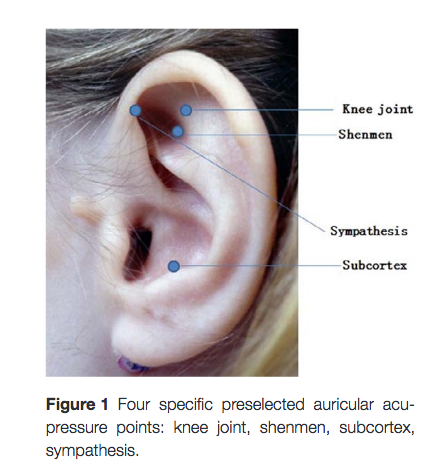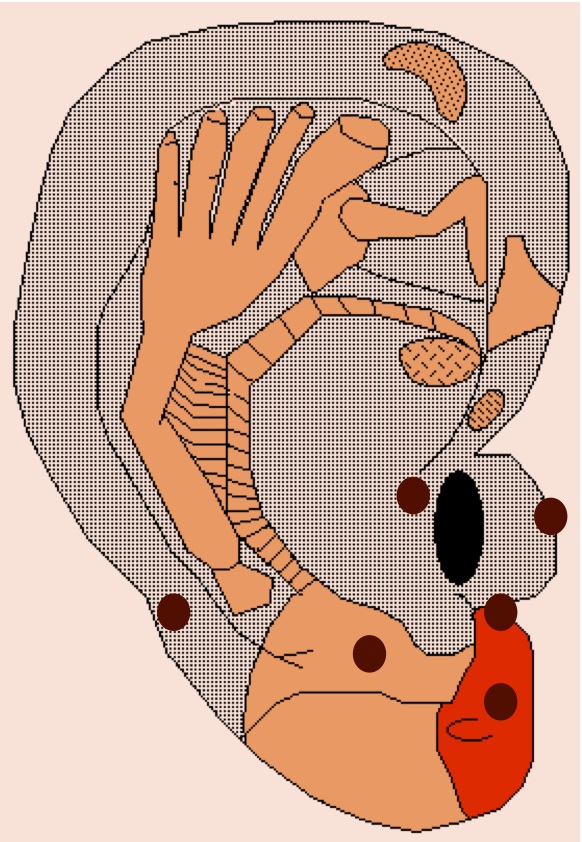Analgésie
Auricular Acupressure for Analgesia in
Perioperative Period of Total Knee Arthroplasty

Fulltext
Abstract
Pain Med. 2013 Oct ;14(10):1608-13. doi : 10.1111/pme.12197. Epub 2013 Jul 18.
Auricular acupressure for analgesia in perioperative period of total knee arthroplasty.
He BJ1, Tong PJ, Li J, Jing HT, Yao XM.
Author information
Abstract
OBJECTIVE :
We examined whether auricular acupressure (AA) can alleviate postoperative pain and decrease narcotic consumption and its adverse effects for osteoarthritis patients after total knee arthroplasty (TKA).
DESIGN :
A prospective, randomized, sham control trial comparing AA and a sham control.
SETTING :
Department of Orthopedics, the first Hospital affiliated to Zhejiang University of Traditional Chinese Medicine, Hangzhou, China.
SUBJECTS :
Ninety patients with degenerative osteoarthritis undergoing TKA.
INTERVENTIONS :
The AA group received true AA by embedding vaccaria seeds at four specific AA points (knee joint, shenmen, subcortex, sympathesis) ipsilateral to the surgery site, while the control group received four nonacupuncture points on the auricular helix.
OUTCOME MEASURES :
Visual analog scale (VAS), the consumption of analgesic via patient-controlled analgesia, the incidence of analgesia-related adverse effects, Hospital for Special Surgery scores (HSS), and range of motion (ROM) were recorded.
RESULTS :
VAS scores were similar at 12, 24, 36, and 48 h postsurgery (P > 0.05), but AA group scores were lower than those of the control group at 3, 4, 5, and 7 days (P < 0.05). Patients in the AA group consumed lower doses of analgesic than those in the control group after surgery (P < 0.05). The incidence of analgesia-related adverse effects in the AA group was lower than that in the control group (P < 0.05). Although HSS scores were similar in the two groups preoperatively and at 3 months postoperatively (P > 0.05), HSS scores 2 weeks postoperatively were higher in the AA group than in the control group (P < 0.05), but there was no difference between groups in ROM (P > 0.05).
CONCLUSIONS :
Applying auricular acupoint acupressure in the perioperative period of TKA is favorable for alleviating postoperative pain, decreasing opioid consumption and its adverse effects, and promoting early rehabilitation. Also, this intervention has the advantage of lower costs, fewer complications, simple application, and high safety.
 Points d’auriculothérapie / Auriculotherapy Points
Cartographie synthétique et évolutive
Points d’auriculothérapie / Auriculotherapy Points
Cartographie synthétique et évolutive
